Red Symons opens on tragic death of son Samuel
Red Symons suffered every parent’s worst nightmare — losing his son Samuel not long after his own health battle. But as the TV and radio veteran looks to 2020, he opens up on the bittersweet lessons tragedy has taught him.
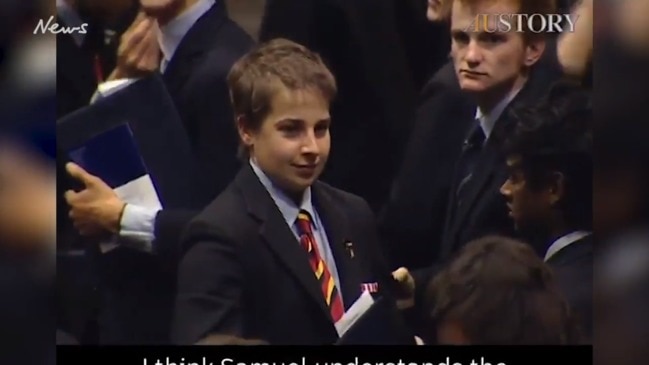
Fiona Byrne
Don't miss out on the headlines from Fiona Byrne. Followed categories will be added to My News.
Red Symons enjoys a chat. From Skyhooks to Hey Hey It’s Saturday to breakfast radio, Symons has been a constant in the Australian entertainment landscape for more than 40 years. 2020 is shaping as a year where we will be hearing a lot more from the rocker, writer and radio star. Here Symons talks about the loss of his beloved son, his shock collapse, regaining his health, the legacy of Hey Hey, and the reason he turned down a trip to the jungle.
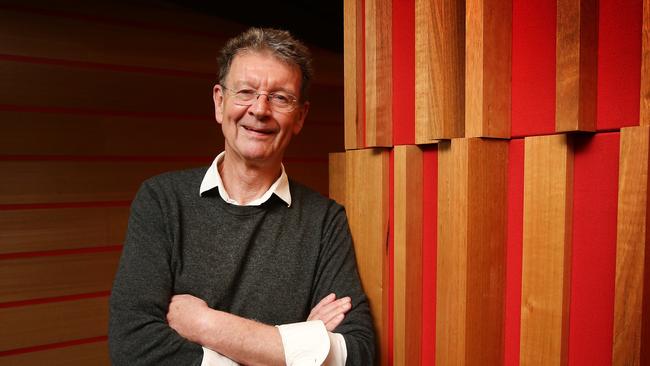
FIONA BYRNE: Red, you recently returned to radio hosting filling in for Neil Mitchell on 3AW. What was it like to be driving a show again and are you and Mitchell rivals?
RED SYMONS: It is interesting that people have said that I’m back. I never went away. It (was) like lending somebody the car, there will be a few scratches and a flat tyre and it will be somewhere a long way from home. The funny thing is when I was at the ABC, Neil and I were not rivals because we were in different timeslots. And I am guilty of saying to him when I ran into him at the football or whatever, ‘I actually listen to you’. Even when I was at the ABC there were certain things that Neil did, and still does now, that I think are really good. It is about the craft. If you have a question for the audience go with that first and make it as simple as you possibly can. Some of my favourite times on radio are just talking to people on the phone about whatever. My favourite starting point, and I did this years ago, is at 5.30am my opening question is; ‘I was watching something the other day and who is that guy in that thing?’ There is the world’s most open ended question and it just starts a conversation and in my experience, such as it is, it does not matter what the question is but once the conversation is started then you see where it goes.
FB: You hosted breakfast for 15 years before leaving in November 2017. Have you missed the routine of radio?
RS: I still get up at 4am, that is just my circadian rhythm. It feels natural to me. At the very start (of hosting Breakfast) that is the question you are confronted with; can you handle the hours. In the first couple of weeks of doing Breakfast it comes as a shock that you get up at 4am and you don’t go out after 7.30pm or something like that. But after two or three weeks I realised, ‘This actually suits me. I am perfectly happy with this. I like this.’ And that is one of the reasons why I could easily sustain it then and now. I have had a lot of night-life in my life and I don’t need anymore.
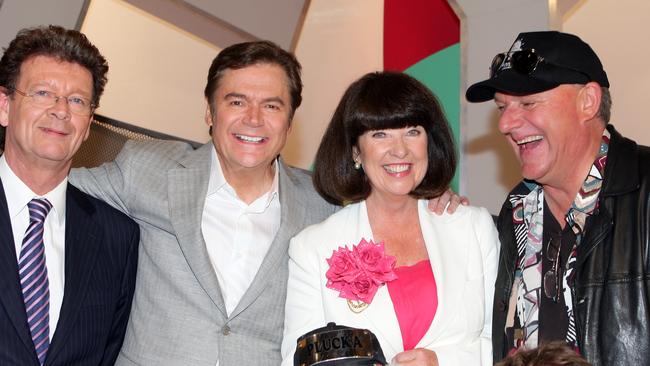
FB: In July 2017 you collapsed while walking home. How is your health these days?
RS: The most disturbing judgment was that given by a professor in rehabilitation. He sort of re-performed his very first lecture for his students and he made a list of all the ways particular kinds of concussion can affect your behaviour and they are the things that we do all the time except they are skewed, they get bigger or smaller. I said I did not feel like, in the context of the radio, that I was any different, I did not get text messages saying, ‘you have lost your mind, get off.’ He said to me, ‘I used to listen to you before your accident and I listened to you after your accident and after you were nicer,’ which I found most disturbing. I did not set out to achieve that. I was mildly offended, like I had lost my mojo.
FB: Were you given an exact diagnosis as to what caused your collapse?
RS: Probably low blood pressure. Welcome to medicine. There was one doctor I spoke to who almost drew a tree on a piece of paper with branches going everywhere and said, ‘it could have been this or this or this or this or this, we don’t really know.’ There are some comical things about that (collapse). My birthday last year, coincided with me doing a charity thing for the intensive care unit at the Royal Melbourne Hospital. I was shown around before the day and I said to the doctor, ‘a friend of mine was in here a couple of years ago, I have been in here before,’ and he said, ‘Yes, you were in here for two days.’ I have no memory of that. I think it is part of Sigmund Freud’s plan; there are certain things that one does not particularly want to remember. I faint in the street and hit my head, it must have been somewhat painful and frightening. I am glad I don’t remember that.
FB: Have you instigated any changes in your life because of the collapse?
RS: It is the simplest thing of all, you are presented with your own mortality and the things that you intended to do about your own continuance you do, you don’t think about it. I am in better health now than I was 20 years ago, I think. I don’t smoke, I rarely drink, I swim every day and then there are the little things, like I would rather walk than drive if it is not too far away because, I am thinking to myself, this will be good for me. Some of those things, I was already going in that direction mentally and physically, but I am more determined about those things now.
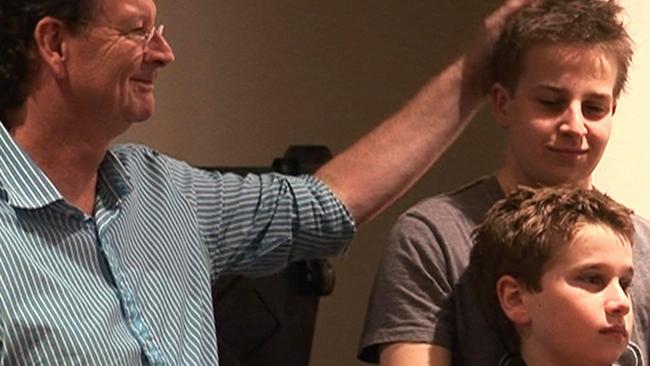
FB: In October 2018 your son, Samuel, lost his long and brave battle with cancer at the age of 27. That loss must still be so painful.
RS: There is not a day that goes by that I don’t think of him. On the anniversary of his death I sort of wrestled with the idea of should one have a ritual. I just found myself in my everyday life seeing him everywhere; I drove up past the Peter MacCallum (Cancer Institute) where he died, I came here (to Marios in Fitzroy) which was the first place we took him to when we emerged from hospital after he was born and welcomed him to the outside world. It is a truth, I shall always have him. I can look at children now and miss him when he was four years old or two years old or six years old, rather than simply being annoyed by someone else’s child.
FB: You celebrated your 70th birthday in June and have no plans to slow down.
RS: It (my age) is a matter of public record. I could try to lie about it, I could obfuscate, I could create diversions – for instance I think it is something like 23 thousand days, that does not sound so bad, does it, and it is something like two billion heartbeats. We all can live longer than we could 50 years ago or 100 years ago because of what we know and our circumstances, but in order to keep living you have to keep busy, you have to keep pursuing whatever craft you have. Will and purpose is very important I think.
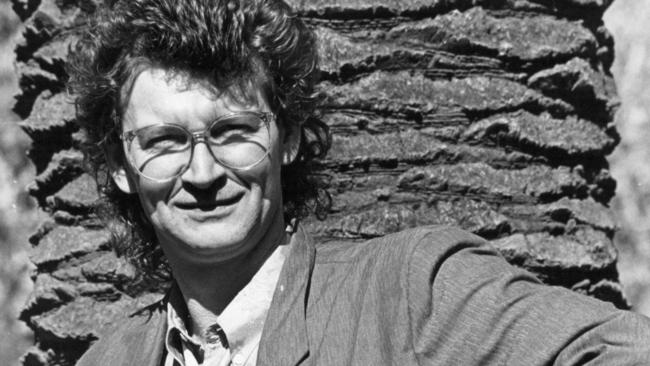
FB: Would you like to do more radio and TV this year?
RS: Yes, I am available. It depends what it is. There are certain television programs that shall remain nameless, there is one in particular that has asked me every year for three years to do the program, and I think, ‘No, I don’t really want to do that.’ There are lots of radio stations I would not want to work for. I don’t want to sit in a room playing records for hour after hour, but anything involving talk I am comfortable with. It interests me and I like it.
FB: What shows have you turned down recently?
RS: I think the jungle was involved with the one I declined. There was one in regard to nudity that I was offered. There are certain things, it is like being in a sausage factory, you just get processed by the show and there is not the opportunity to express yourself via the show. We were really spoiled doing Hey Hey It’s Saturday because pretty much everybody was just making it up as they went along. It was live so what are you going to do if you get it wrong – you just keep going.
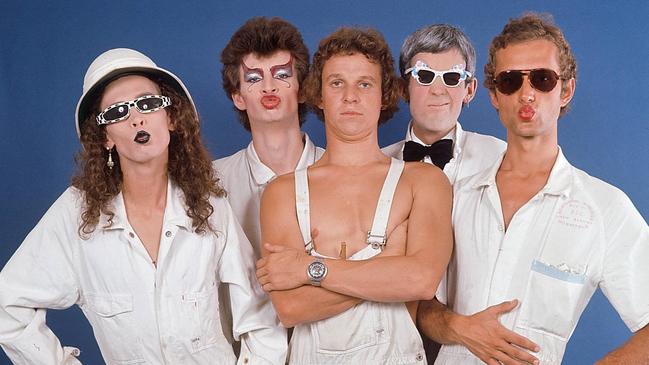
FB: Is there still a place for a show like Hey Hey It’s Saturday on Australian TV?
RS: Yes, there is but there is not the economic environment for it because one of the things that fuelled Hey Hey was if a major musical recording star needed to promote something the record company would fly them out here, put them in a hotel and put them on the television and that is no longer the case. Times change.
FB: Hey Hey positioned you as “the nasty judge” or “Australia’s Grumpy Old Man” …
RS: I can turn it on for you if that is what you want. That is very much a pantomime villain thing; the guy in the black coat with a twirly moustache. In terms of my character and the way I relate to the world, it has changed through doing radio. This is the way I see it. When you are in a band you are nothing more than what you appear to be as an image, as a picture. If you do something like Red Faces on television, television generally is a corridor, an aspect of your character, not all of it. On the radio, five days a week, two and a half, three hours a day, you do eventually reveal yourself in whatever way. You are fallible, you are right about some things, wrong about others, you are funny sometimes. The one thing I do like about radio is if you work on television with an audience you become dependent on the audience laughing. Every time they laugh you think, ‘Oh, it worked, I did it.’ You have to internalise that on radio and think, ‘this is a funny idea, but I am not expecting a laugh at the end,’ and it changes the tone in what I think is kind of a good way. It becomes droll rather than hilarious. You are not so desperate for a response. It applies to writing too, in a way. You internalise the audience, you imagine how they might respond to it, and write accordingly and radio can be very much like that.
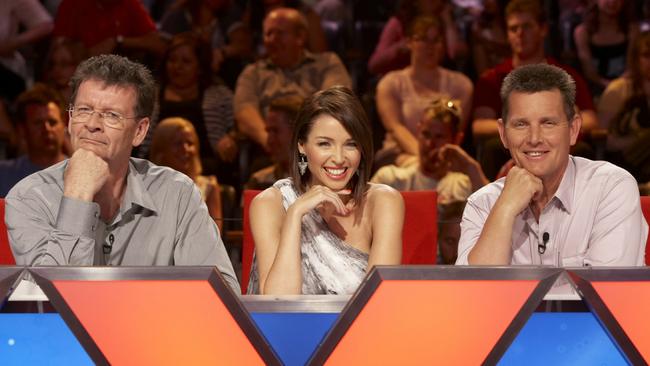
MORE NEWS:
HOW A TRADIE BECAME FACE OF COLD CASE MURDERS
BIG NAMES IN MIX FOR SOUND RELIEF
FB: What are your thoughts on reality TV, particularly the talent quest type shows, given that you were a judge on Australia’s Got Talent?
RS: The thing I find tiresome about the current music talent shows is that it is always pushing the idea that for every single contestant this will change your life, you will emerge from this like a butterfly out of a chrysalis, and that is almost never the case. You are just doing this now and really that is the best way to approach any performance. It is not about if I do this something great will happen later on. No. Why don’t you do something great now and see what happens? If it (success) happens, it does, and if it doesn’t, it doesn’t. The lost beauty in a way of Red Faces on Hey Hey It’s Saturday is that nothing was at stake. The best case scenario was you would get bus fare home and a two hundred bucks. The performers, the judges and the audience knew that it was just a bit of fun.
